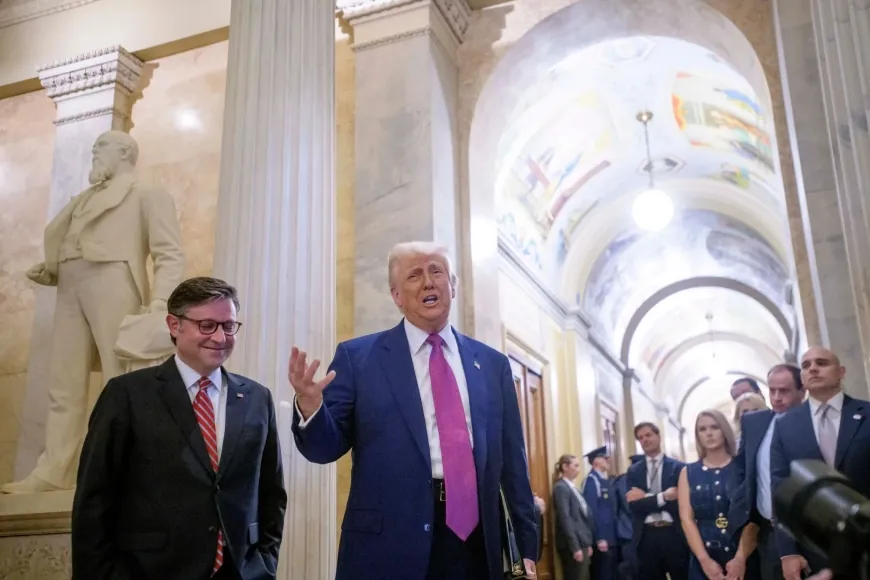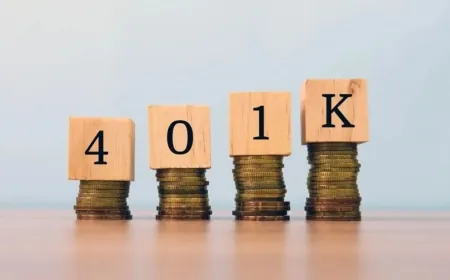Trump Big Beautiful Bill Moves Forward with Tax Cuts for Manufacturers, Setbacks for Green Energy
Trump Big Beautiful Bill advances in Congress, offering major tax breaks for factories while green energy firms warn of job losses and project cuts.

President Donald Trump’s newly introduced tax legislation, informally known as the "big, beautiful bill," has sparked strong reactions across the manufacturing industry. While many traditional factory owners see the proposal as a financial windfall, clean energy companies and globally operating firms are warning of damaging consequences if the bill is enacted in its current form.
The legislation spans over 1,000 pages and is filled with tax changes aimed at strengthening U.S.-based manufacturing. It includes new rules that allow businesses to write off factory construction costs immediately, as well as permanent tax relief for small and mid-sized manufacturers.
Tax Incentives Target Domestic Manufacturing Expansion
A central feature of the bill is the introduction of a 100% expensing rule for physical plant investments, enabling manufacturers to instantly deduct the cost of constructing or modernizing facilities. This change, set to take effect from 2025 through 2028, is expected to stimulate rapid capital deployment and infrastructure upgrades across the sector.
In addition, the bill proposes a permanent 23% pass-through deduction under Section 199A of the IRS code. This specific deduction benefits businesses structured as S-corporations and partnerships—an organizational model that applies to about 96% of U.S. manufacturers, according to the National Association of Manufacturers (NAM).
“This legislation is built around the needs of American manufacturers,” said Jay Timmons, President and CEO of NAM. “The tax structure it introduces could increase our ability to hire, build, and compete globally.”
Renewable Energy Producers Warn of Investment Cuts
While the bill has received strong backing from traditional manufacturing advocates, companies involved in solar energy, wind power, and electric vehicles could see core incentives stripped away. Several key clean energy tax credits introduced during the Biden administration are scheduled for rollback under the proposal.
“This bill sends a message that the U.S. is retreating from clean energy leadership,” said Alex Jacquez, a former advisor on economic development under President Biden. “We’re likely to see project delays, cancelled investments, and a slowdown in innovation.”
The financial markets appear to share this outlook. Clean energy stocks—particularly in the solar industry—fell sharply following the bill’s progress in the House.
A recently added clause could further complicate matters for renewable developers. Projects must begin construction within 60 days of the bill’s signing in order to qualify for specific remaining credits. Industry leaders argue that this timeline is too short for most clean energy projects to meet.
Policy Shift Creates Risks for Global Firms with U.S. Operations
The proposed update to Section 899 of the IRS code would impose stricter tax requirements on companies operating in countries labeled as “discriminatory foreign nations.” While the measure targets foreign policies seen as unfair to American trade, it could unintentionally burden U.S.-based employees of global manufacturers.
According to the Global Business Alliance, international companies currently provide 2.9 million U.S. manufacturing jobs, representing over 22% of the domestic manufacturing workforce.
“This policy doesn’t affect executives in foreign capitals—it hits workers in places like London, Ohio, and Paris, Kentucky,” said Jonathan Samford, President of the Global Business Alliance. “The unintended consequences will land squarely on American soil.”
Clean Energy Sector Estimates Heavy Economic Losses
Industry group Advanced Energy United has projected that the rollback of clean energy credits could place $3 trillion in economic activity and 13.7 million projected jobs at risk over the next ten years. The group’s CEO, Heather O’Neill, emphasized that these tax credits have driven growth, innovation, and job creation in multiple states—including many represented by lawmakers who support the current bill.
“We’re urging members of the Senate to preserve the tax policies that are fueling economic opportunity in clean and advanced energy industries,” O’Neill stated.
Some Republican lawmakers from traditionally conservative states have also expressed concern. Their districts are already benefiting from clean energy investments made possible by the existing credits, prompting calls for reconsideration of the bill’s proposed reversals.
Senate Negotiations Expected to Influence Final Terms
Several senators are now advocating for revisions before the legislation moves forward. Among the possible changes are proposals to extend or make permanent tax breaks for factory construction and to reevaluate the timeline for energy projects.
NAM’s Jay Timmons indicated that discussions with lawmakers remain active. “We are working closely with congressional leaders to ensure that the final version of this bill delivers maximum value to U.S. manufacturing—across all sectors,” he said.
The outcome of these negotiations could determine whether the bill delivers widespread economic momentum or leaves key industries behind. With high stakes for both fossil-fuel-based and clean energy manufacturers, policy adjustments will be closely watched by business leaders nationwide.
Also Read: Ultraconservative Republicans Threaten to Block Trump’s Tax Bill Despite SALT Deduction Increase
































































